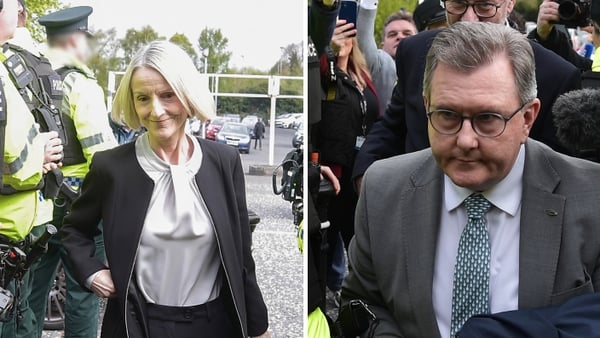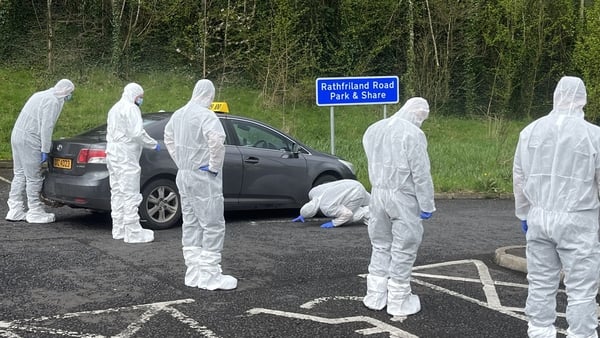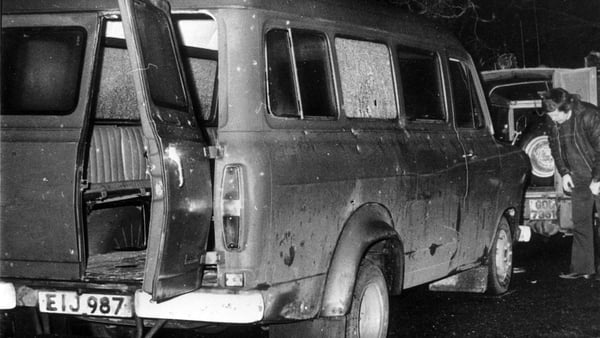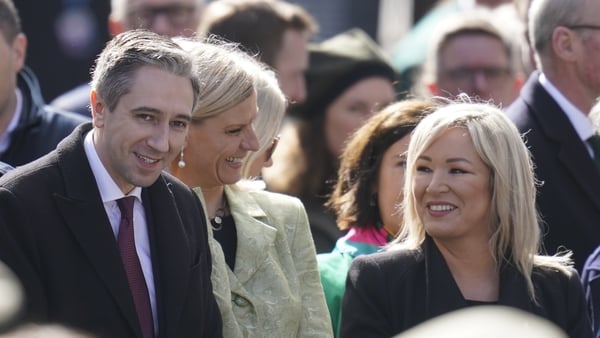More people in Northern Ireland are Catholics than Protestants for the first time in its 101-year history, the latest census figures show.
The census reveals that of the resident population, 45.7% are either Catholic or brought up Catholic.
The percentage of the population who are either Protestant or were brought up Protestant is 43.5%.
9.3% of people said they neither belonged to nor were brought up in any religion.
The figure for the Catholic population has increased by 0.6% since the last census in 2011, while the figure for the Protestant population has fallen almost 5% during the same period.
One of the key reasons for the decline in the Protestant population is that it is an older, aging community with higher mortality.
The figures were published this morning by the Northern Ireland Statistics and Research Agency (Nisra).
Speaking in New York, Taoiseach Micheál Martin said people need to be very careful about demographics being the central issue in terms of the evolution of relationships on the island of Ireland.
"We need to be very careful about demographics as to central issue in terms of the evolution of relationships on the island of Ireland and between Britain and our identities, interesting figures there as well," he said.
Mr Martin noted the growth in the census of people who identify with neither religious affiliation.
He said he detected a genuine sense that the people wanted the Good Friday Agreement to work and many wanted to see the institutions restored.
The Taoiseach said in his discussions with the British Prime Minister at the weekend, they both agreed that it was imperative the Stormont Assembly and Executive was restored as quickly as possible.
The population of Northern Ireland when the census was carried out in March last year was 1,903,100, an increase of 5% since 2011 and the highest figure recorded since Northern Ireland was created.
When it comes to national identity, the number who said they have a "British only" identity has fallen while those who regard themselves as "Irish only" has increased.
Those who described their identity as British only identity has fallen from 40% to 31.9%, from 772,400 in 2011 to 606,300.
The number who regard themselves as "Irish only" is up from 457,000 to 554,000 or 29.1%, that is up from 25% ten years ago.
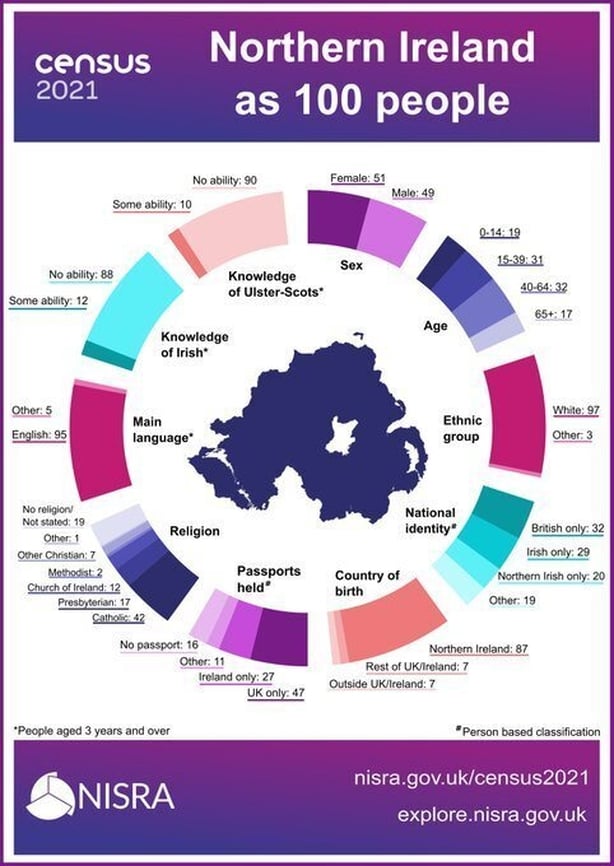
There has been a sharp rise in the number of people in Northern Ireland who hold an Irish passport over the past decade, while the number with a British passport has fallen.
The number who now hold an Irish passport either solely or jointly has increased from 375,800 in 2011 to 614,300 in 2021.
The number with a UK passport is 1 million, down from 1.7m ten years ago.
The Northern Ireland Statistics and Research Agency says this is consistent with the increasing demand for Irish passports since the UK left the EU in 2016.
The data was published this morning by the Northern Ireland Statistics and Research Agency (Nisra).
Read more:
A day NI's founders were confident would never happen
'Historic change' - politicians and academics react to NI census
'Seminal moment in history'
SDLP leader Colum Eastwood said the shift is "a seminal moment in the history of modern Ireland" that should not be downplayed.
Sinn Féin MP John Finucane said the census indicated that "historic change is happening".
"Today's census results are another clear indication that historic change is happening across this island and of the diversity of society which enriches us all," he said.
The publication of the census traditionally prompts debate over what the figures may mean for the constitutional future of Northern Ireland.
Some may seek to draw a direct link between the religious breakdown and public opinion on the potential reunification of Ireland.
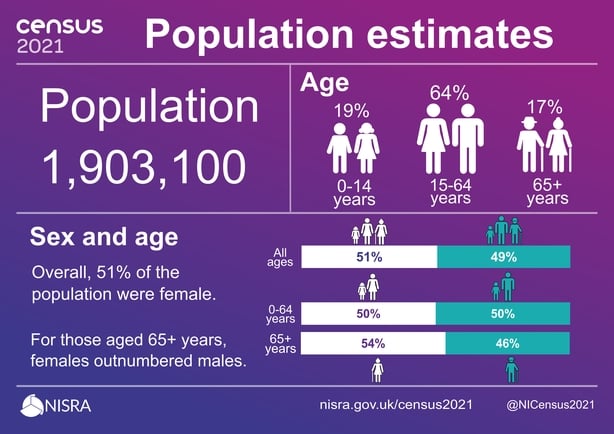
However, critics of that approach view religious affiliation as a crude metric to measure sentiment on the constitutional question, insisting that just because someone is Protestant or Catholic does not necessarily mean their respective political outlooks are unionist or nationalist.
In that respect, more emphasis may be placed on the census figures on national identity.
That question was included in the census for the first time in 2011, when 40% said they had a British only national identity, 25% said they had an Irish only identity and 21% viewed their identity as being only Northern Irish.
Under the terms of the 1998 Good Friday Agreement, the constitutional status of Northern Ireland can be changed only with the consent of its population.
The incumbent Northern Ireland Secretary is obliged to call a referendum on Irish unity if he or she believes there has been a shift in public opinion that would indicate a majority in favour of constitutional change.
However, the 1998 peace deal provided no detail on what metrics or criteria should be relied upon to make this judgement call.
The figures on religion and national identity are part of the second round of data being published from census 2021.
The second release of figures will also include data on ethnicity, sexual orientation and a range of other demographic statistics.
Additional reporting: PA


